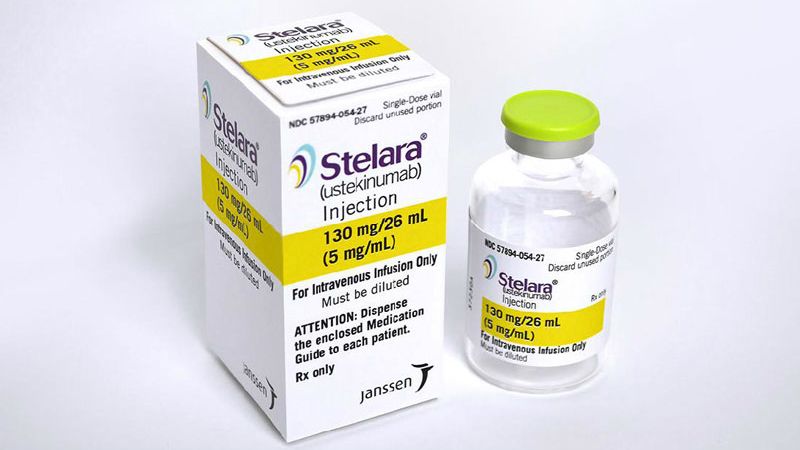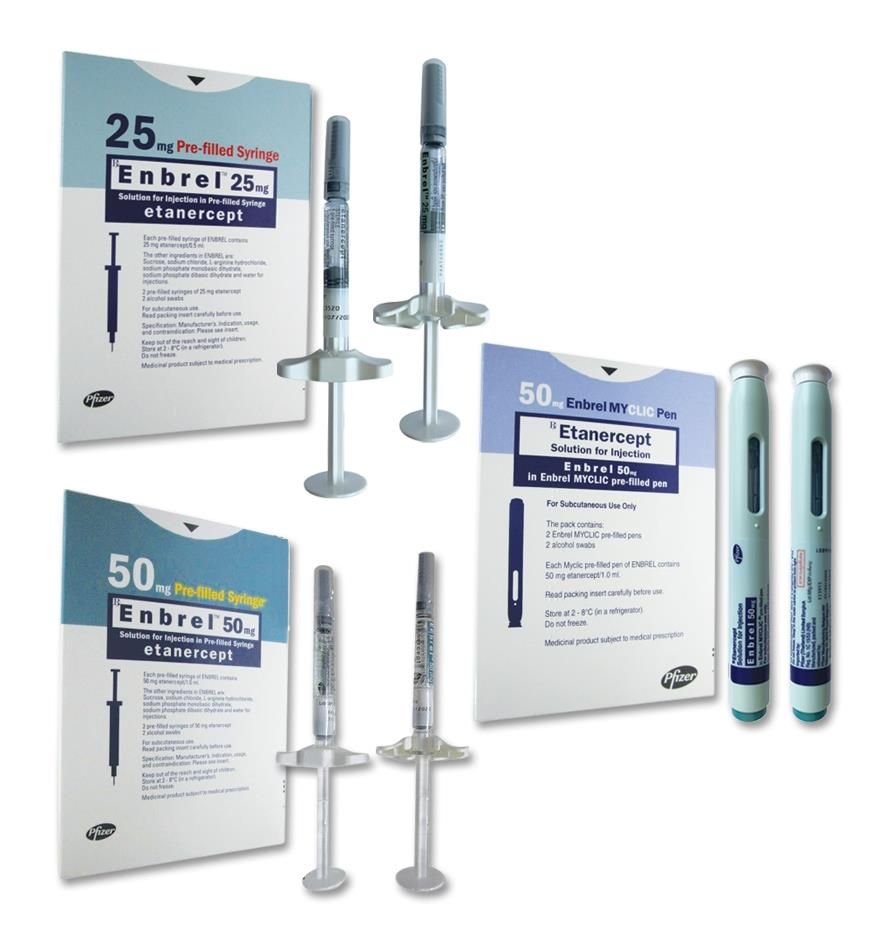- Bone Health
- Immunology
- Hematology
- Respiratory
- Dermatology
- Diabetes
- Gastroenterology
- Neurology
- Oncology
- Ophthalmology
- Rare Disease
- Rheumatology
Stelara and Enbrel Chosen for IRA Price Negotiation
Stelara (ustekinumab) and Enbrel (etanercept), 2 originator medications that will face biosimilar competition within the next decade, were among the 10 preliminary drugs chosen for Medicare price negotiation under the Inflation Reduction Act (IRA).
Stelara (ustekinumab) and Enbrel (etanercept), 2 originator medications that will face biosimilar competition within the next decade, were among the 10 preliminary drugs chosen for Medicare price negotiation under the Inflation Reduction Act (IRA).
Stelara (reference ustekinumab) is available to patients in either prefilled vials or prefilled syringes for subcutaneous injection. The drug is used to treat patients with moderate-to-severe plaque psoriasis and psoriatic arthritis.

The full list of chosen drugs includes:
- Apixaban (Eliquis)
- Empagliflozin (Jardiance)
- Rivaroxaban (Xarelto)
- Sitagliptin (Januvia)
- Dapagliflozin (Farxiga)
- Sacubitril/valsartan (Entresto)
- Etanercept (Enbrel)
- Ibrutinib (Imbruvica)
- Ustekinumab (Stelara)
- Insulin aspart (Fiasp, Fiasp FlexTouch, Fiasp PenFill, NovoLog, NovoLog FlexPen, NovoLog PenFill)
The IRA was signed into law by President Joe Biden in August 2022 after contentious votes in the Senate and House of Representatives. As required by the IRA, price negotiations between Medicare Part D plans and pharmaceutical companies will take place through the rest of 2023 and throughout next year, with the negotiated prices taking effect in 2026.
Price negotiations will be implemented in phases. Drugs eligible for negotiation must be high-expenditure, single-source medicines without generic or biosimilar competition for the next 2 years after publication of the selected drug list.
“The rationale for this delay is to not create financial incentives that could deter biosimilars from entering the market if, for example, a reference product (the original biological product approved by FDA against which a proposed biosimilar product is compared) is selected for negotiation and ultimately priced lower than potential competitor biosimilar products,” explained the Kaiser Family Foundation in its FAQ page on IRA price negotiation.
Although Enbrel has 2 FDA-approved biosimilars and Stelara has a few ustekinumab biosimilars coming down the pipeline, neither drug has biosimilars currently on the market. The chosen drugs must also have been on the market for over 9 years for small molecules and over 13 years for biologics.
Patients can access Enbrel (reference etanercept) in 25 mg or 50 mg prefilled syringes or as a 50 mg prefilled autoinjector pen. The drug is indicated to treat rheumatoid arthritis, psoriatic arthritis, plaque psoriasis, ankylosing spondylitis, and polyarticular juvenile idopathic arthritis.

Etanercept biosimilars are expected to launch in 2029 and ustekinumab biosimilars have been delayed from 2023 to 2025 after biosimilar manufacturers settled patent litigation suits with the originator manufacturer, Janssen. Additionally, while the European Union has 3 insulin aspart biosimilars on the market, the United States has none.
According to the announcement of the list, the first 10 drugs accounted for about one-fifth of total Part D–covered prescription drug costs from June 1, 2022, and May 31, 2022, generating approximately $50.5 billion in costs. During the negotiation process, Medicare and the manufacturers will need to consider each drug’s clinical benefit, indication for unmet clinical need, and impact on Medicare beneficiaries.
While the negotiated prices for this initial list will take effect January 1, 2026, CMS will also select up to 15 additional drugs for which Part D negotiations will occur for 2027, up to 15 more for 2028 (including both Part B and Part D), and up to 20 more drugs for each subsequent year.
The price negotiation initiative outlined in the IRA has encountered significant pushback from the pharmaceutical industry, especially the biosimilars sector.
Additionally, the US Chamber of Commerce filed a motion to block the application of the program in July 2023, claiming the policy violated the First, Fifth, and Eighth Amendments. The Department of Justice responded a month later, contending that the chamber lacked standing to file the lawsuit and that halting implementation of the program would harm the public interest. Lawsuits have also been filed by PhRMA, the pharmaceutical trade organization, as well as individual companies, including Merck and Bristol Myers Squibb.
Overall, the IRA law has 4 main pillars that will impact medicine pricing and cost sharing among stakeholders, including prescription drug inflation rebates, patient out-of-pocket caps, a redesign of Part D benefits, and lowering prices through negotiation.
In October 2022, the temporary boost in payments to encourage the use of biosimilars went into effect, which increased the Medicare reimbursement on biosimilars from 6% of the average sales price of the reference drug in addition to the cost of the biosimilar to 8%. The boost will last until October 2027.
Another piece of the IRA was the $35 patient out-of-pocket cap on insulin products, including biosimilar and follow-on insulins, within Medicare Part D and Par B plans. A report from the HHS found that if the IRA cap was implemented in 2020 instead of 2023, Part D beneficiaries could have saved $734 million and Part B beneficiaries could have saved $27 million, averaging out to about $500 on insulin per member per year.
New prescription drug inflation rebates will require manufacturers to pay rebates if their drug prices increase faster than general inflation. This portion of the IRA was implemented in October 2022.
Newsletter
Where clinical, regulatory, and economic perspectives converge—sign up for Center for Biosimilars® emails to get expert insights on emerging treatment paradigms, biosimilar policy, and real-world outcomes that shape patient care.
